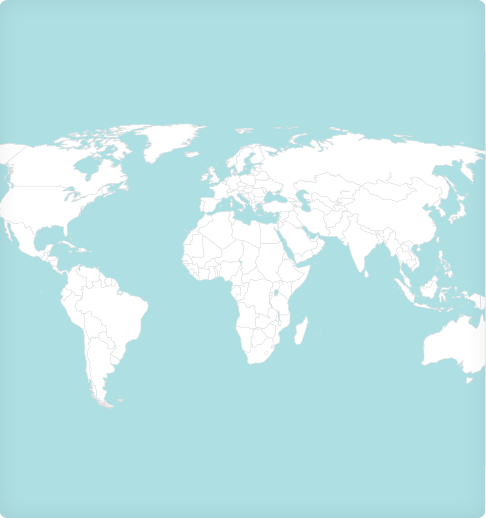Credits
16
Prerequisites
None
Courses taught in
English
Dates
late January – early May
Program Countries
Portugal
Critical Global Issue of Study
Climate & Environment

Learn how Portugal addresses climate change through unique sustainability and social equity initiatives that challenge core principles of mainstream economic theory.
16
None
English
late January – early May
Portugal
Climate & Environment
SIT First Year: a new experience from SIT, the fully accredited leader in academic and social justice-driven study abroad.
Live in Lisbon, the European Green Capital for 2020, a city addressing carbon emissions and the impact of tourism through renewable energy technologies and sustainable urban transportation. Here, you’ll discover how Portugal’s approach to sustainability and social equity challenges core principles of economic orthodoxy. Learn how policymakers are creating green policies that enhance innovation and sustainable living. Portugal has crafted a holistic approach to urban planning that considers all aspects of the city, including water, mobility, waste, education, and employment. Portugal also aims to protect its natural areas and provide quality outdoor recreational space for its citizens. Excursions to the Azores Islands and the coastal city of Porto offer an opportunity to learn about conservation projects, sustainable agriculture, resource management, and forest fire management.
None.


Visit the Azores, the first archipelago in the world certified as a sustainable tourist destination. See how harmony between people and nature makes this a unique territory.
Learn how Portuguese industries use plastic trash from the Portuguese coast to produce sustainable fashion and how local producers are changing to more sustainable production.
Please note that SIT will make every effort to maintain its programs as described. To respond to emergent situations, however, SIT may have to change or cancel programs.
The following syllabi are representative of this program. Because courses develop and change over time to take advantage of dynamic learning opportunities, actual course content will vary from term to term.
The syllabi can be useful for students, faculty, and study abroad offices in assessing credit transfer. Read more about credit transfer.
This course prepares students to transition from high school to college, as well as between living and learning at home and abroad. Course content and activities, including basic language instruction, orient students to the intellectual, social, and intercultural environment of their learning community. Through experiential learning activities and personal reflection, students will develop the transferable knowledge, skills, and habits that lead to success, well-being, and resilience in the program, in college, and beyond. Course concepts include cultural immersion, anti-oppression and anti-bias training, mindfulness for well-being, “campus” resources, and academic success strategies.
The Community Engagement and Reciprocity course challenges students to develop appreciation of multiple perspectives and an understanding of reciprocal engagement with local communities. Students are asked to employ “service listening” (as opposed to “service learning”) as they learn what reciprocal engagement means for their local host communities. Volunteer experiences with SIT community partners help students learn about the practical and ethical concerns that shape engagement and reciprocity in community action. Students will develop knowledge, skills, and perspectives that transfer to their academic trajectories, while experiencing mutually beneficial civic and community partnerships.
The Career Pathways and Explorations course guides students in an exploration of their interests, field experiences, and personal goals to craft pathways toward their academic and career goals. Students are guided through reflective, exploratory, experiential, and information-gathering exercises that help them articulate long-term goals. Students are offered mentorship as they gain tools to help achieve those goals. By the end of the semester, each student develops a pathway map: a plan that identifies goals and concrete steps through college and toward a career. Concepts include personal identity, values, and career choices.
The terms “global citizen” and “global citizenship” have varied, overlapping, and equivocal meanings. For example, the United Nations defines global citizenship as “the umbrella term for social, political, environmental, and economic actions of globally minded individuals and communities on a worldwide scale.” It also “can refer to the belief that individuals are members of multiple, diverse, local, and non-local networks rather than single actors affecting isolated societies.” Rather than offer a pat definition of global citizenship, this course considers how different conceptualizations are promoted, practiced, and contested. Through readings, multimedia texts, case studies, guest lecturers, and field visits, we will examine personal identity and cultural diversity, social justice and sustainable development, activism and advocacy, and service-learning and study abroad. From this foundation, we will assess how these conceptual frameworks of global citizenship are espoused and practiced.
SIT programs are developed around a framework of the most critical global issues — challenges that transcend borders to touch every aspect of life. The Guided Signature Project Seminar is organized around project-based inquiry, with challenging questions that involve students in design, problem-solving, decision-making, investigation, ethical and inclusive practices, peer-supported growth, and written/oral presentations. The Guided Signature Project Seminar uses SIT’s Critical Global Issues framework for topical exploration, as well as development of student skills. This seminar supports each student as they: 1) identify a line of inquiry and modality for their signature project, 2) research and workshop their findings, 3) prepare written and oral presentations, and 4) make a presentation in the SIT First Year symposium. The Guided Signature Project Seminar promotes interaction between faculty and students in a small setting to demonstrate intellectual engagement and foster project-based skills from concept and content through final presentation.
The Special Topics course is an opportunity for faculty to showcase their expertise and areas of specialization. The course will examine pressing issues, spotlight promising approaches, or enhance relevant skills, all within the country context. While the thematic focus of the course may shift from semester to semester, the course framework and course objectives allow for deep exploration.
This program consists of a semester-long, two-unit group internship with a community or research organization, business, cultural institution, or international NGO. Small groups of students are placed together and given a project to tackle as a team under the mentorship of the organization (for instance, putting together a study or marketing campaign, developing a social media strategy, etc.). The group internship concept allows the first-year student to pursue career interests, but in the less complex environment of an individual project. The organization may also ask individual students to do job-shadowing or provide other duties during the internship. This group internship aims to help students sample a prospective career, gain experience for their resumes, and get valuable learning experience in a professional environment. It enhances critical thinking, time management, and intercultural communication skills in an international professional environment. An internship is part of the student’s experiential learning on the program and is not a paid job.
Students may take a language course as an elective. Students will be placed in the appropriate level of a local language (taught in person), or any other language offered by SIT via our online language programming.
This option will be determined in collaboration with students’ home schools.



SIT Study Abroad is committed to ensuring that international education is within reach for all students. We believe in the transformative power of immersive, intercultural experiences and are dedicated to supporting students in their educational journey.
Learn More
A critical step in preparing for your study abroad program is planning how you will maintain your health and wellbeing. Please review the following information carefully and contact [email protected] with any questions or concerns.
View Information